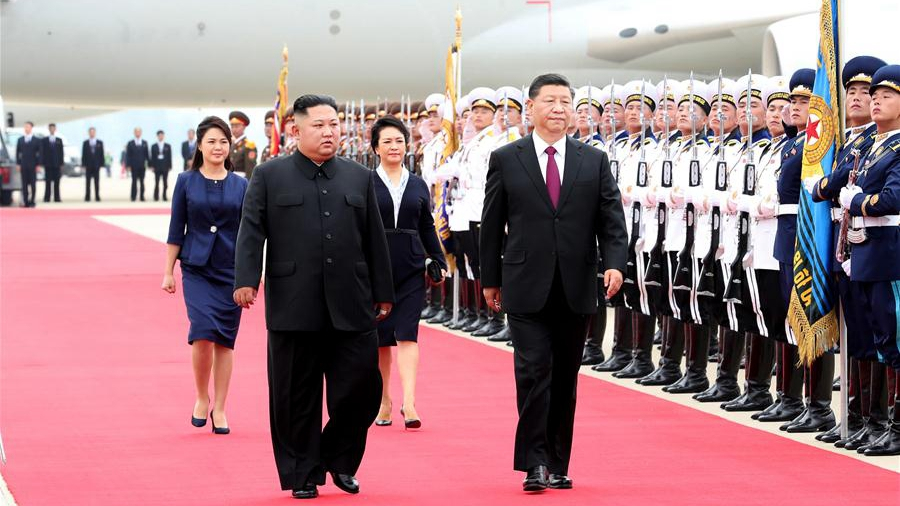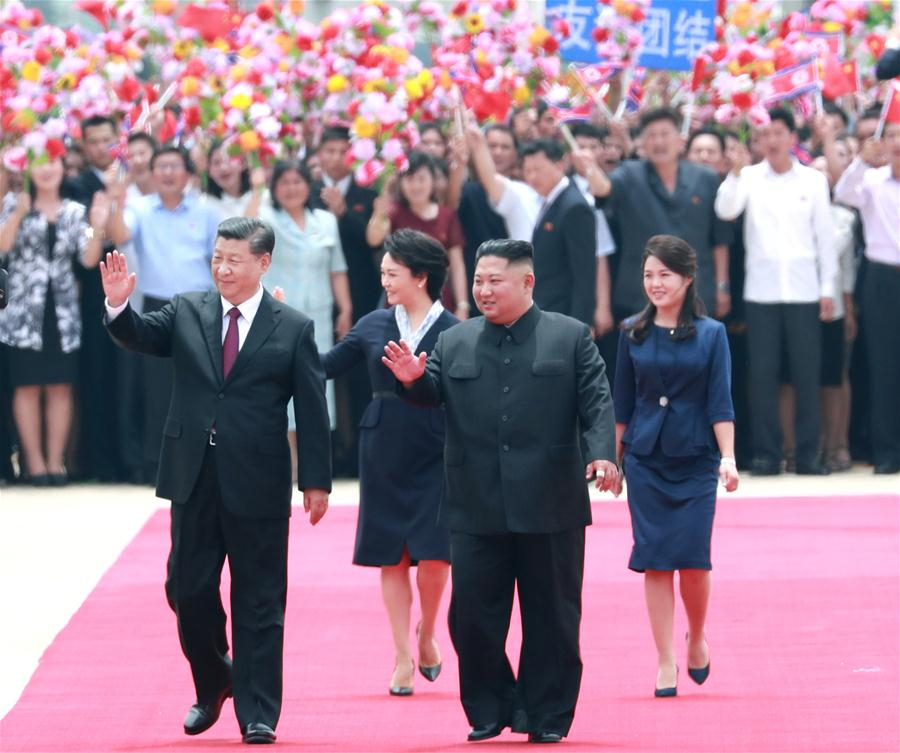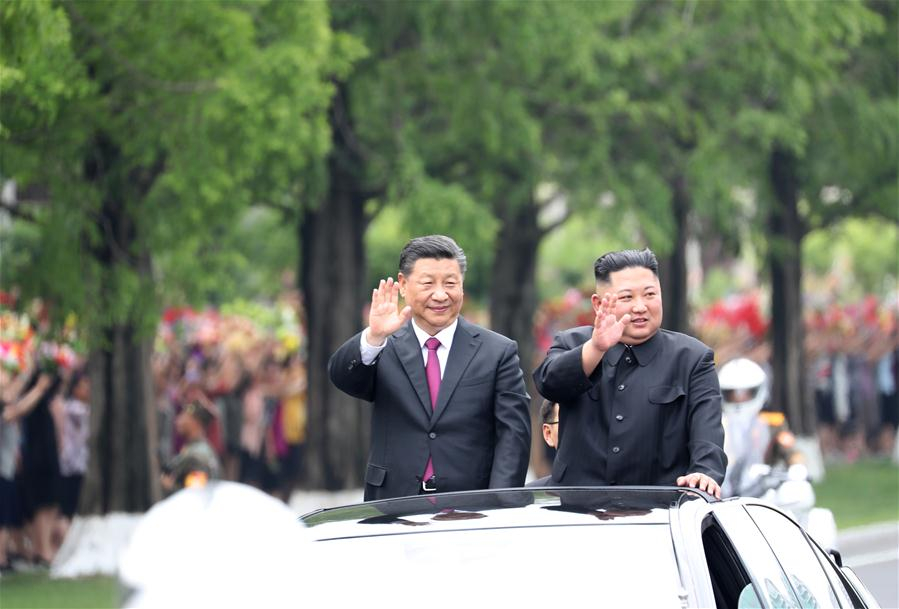

Editor's note: Tom Fowdy is a British political and international relations analyst and a graduate of Durham and Oxford universities. He writes on topics pertaining to China, the DPRK, Britain, and the United States. The article reflects the author's opinion, and not necessarily the views of CGTN.
Chinese President Xi Jinping ended his two-day visit to the DPRK and returned to China on Friday, having engaged in a summit with leader Kim Jong Un and pledged to “continuously and vigorously strengthen and develop DPRK-China traditional relations of friendship and cooperation.”
With the 70th anniversary of ties between the two countries looming, the two leaders discussed a number of topics, including the broader international and security situation whilst pledging to strengthen cooperation in a number of fields.
In addition, the Chinese leader pledged assistance to Pyongyang in maintaining its security and economic development, whilst also offering support towards ongoing dialogue with the United States pertaining to denuclearization.
Following the uncertainty of recent years, Xi’s visit to Pyongyang is a reaffirmation of the strategic considerations which both countries place within the Sino-DPRK bilateral relationship, or as one may call it a “reset.”
With the two leaders discussing what they termed a “grave” international situation, having both found themselves on a collision course with Washington in the past two years, the sentiment has arisen that only by working together can their best interests be secured both domestically and regionally. Thus, the occasion was ultimately right to reaffirm the very ideas which brought them both together in the first place.

A grand welcome ceremony is held by the Democratic People's Republic of Korea (DPRK) for General Secretary of the Central Committee of the Communist Party of China (CPC) and Chinese President Xi Jinping at the Sunan International Airport in Pyongyang, DPRK, June 20, 2019. /Xinhua Photo
Much has been said about the historical links between China and the DPRK, particularly the legacy of the two countries fighting together in the Korean War against the U.S. led coalition. The world has, of course, since changed and the context of the cold war is long gone, with different political contexts ultimately producing a degree of divergence between the two countries.
This has led many to question the relevance of the relationship in modern times, one which owing to China’s reform, development and rapprochement, has seen ideological ties become less important.
Nevertheless, the strategic impetus of China-DPRK ties has survived and at this point in time, has never been more relevant since the end of the Cold War.
With both countries having found themselves on a collision course with Washington, which has approached each with extensive pressure and goals of extracting one-sided unilateral demands and failed to acknowledge each country’s respective interests, the importance of re-emphasizing mutual ties has grown considerably. As Kim Jong Un notes, his own attempts at diplomacy have not yielded “positive” results.

Chinese President Xi Jinping and chairman of the State Affairs Commission of the Democratic People's Republic of Korea (DPRK) Kim Jong Un ride in an open-top vehicle to the square of the Kumsusan Palace of the Sun in Pyongyang, DPRK, June 20, 2019. /Xinhua Photo
Whilst China continues to support the eventual denuclearization of the Korean peninsula, it has come to the recognition that it must be prepared to secure its own national interests directly, and not rely on the “goodwill” of another power and stay out of the picture.
For the DPRK, Xi’s support ultimately ensures that Kim can obtain diplomatic and political capital to negotiate fairly and productively with the United States accordingly. Additionally, it offers him the opportunity to emulate aspects of China’s development in moving his country forward as its fundamental challenges are resolved.
The DPRK leader’s self-declared emphasis is no longer nuclear confrontation, but economic development. He would rather not return to confrontation with the U.S. Should he follow this path, China has a lot to offer.
Regardless, the visit ultimately serves to preserve the “spirit” of the traditional ties formulated between the two countries 70 years ago and transfigure them into the present day. The days of ideological comradeship and talk of conflict are well obsolete and this symbolism is now obtaining new forms in the light of challenges which are once again bringing the two countries together as partners.
Facing off with the trade war and the nuclear question, the China-DPRK relationship continues to be strategically and politically crucial.
(Cover Photo: A grand welcome ceremony is held by the Democratic People's Republic of Korea (DPRK) for General Secretary of the Central Committee of the Communist Party of China (CPC) and Chinese President Xi Jinping at the Sunan International Airport in Pyongyang, DPRK, June 20, 2019. /Xinhua Photo)
(If you want to contribute and have specific expertise, please contact us at opinions@cgtn.com)

Copyright © 2018 CGTN. Beijing ICP prepared NO.16065310-3
Copyright © 2018 CGTN. Beijing ICP prepared NO.16065310-3